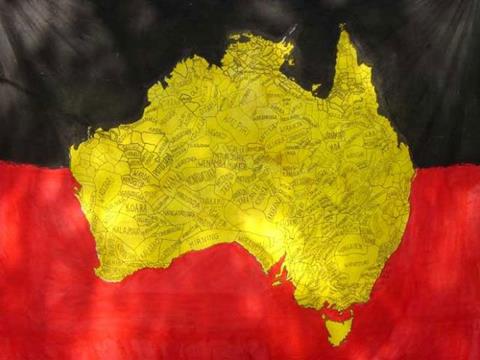Landmark High Court case awards Native Title compensation to the Ngaliwurru and Nungali Peoples

Australian Lawyers for Human Rights (ALHR) has welcomed a historic High Court decision handed down last week awarding the Ngaliwurru and Nungali Peoples compensation in the sum of $2.5 million for native title extinguishment. This landmark judgement is the first time the highest court in Australia has decided the approach that should be taken in determining compensation claims under the Native Title Act 1993.
It has been 25 years since the Native Title Act was enacted, and 13 years since a claim for compensation by the Yankunytjatjara or Pitjantjatjara people for the loss of native title over the town of Yulara near Uluru failed in the Federal Court.
Ms Jo Byrne, Co-Chair of ALHR’s Indigenous Rights Committee said, “We welcome the award of compensation to the Ngaliwurru and Nungali Peoples for the loss of non-exclusive native title which occurred as a result of various acts of the Northern Territory Government in the 1980s and 1990s.”
“We must recognise that the applicants have had to fight at every level of the courts since 1999, as required by the current native title systematically m. This has caused significant cost, time and stress to community. As was recognised in 2017 by Justice Jagot in the Western Bundjalung decision, “the native title system perpetuates injustice on claimants when the government requires all native title claims to proceed to hearing.”
Ms Byrne continued, “The $2.5 million is comprised of compensation for the economic value of native title rights as well as compensation for the cultural or spiritual loss suffered by the Ngaliwurru and Nungali Peoples as a result of their loss of native title. Fortunately, despite arguments by both the Northern Territory and Federal Governments that a sum of $1.3 million in compensation for cultural and spiritual loss was manifestly excessive, the High Court refused to reduce this figure. While the High Court confirmed that the economic component of non-exclusive native title rights should be valued by assessing those rights in comparison to a freehold title, it reduced this comparative value from the 80% originally fixed by the Federal Court and subsequently reduced to 65% by the Full Federal Court, to just 50% of the freehold value of the land.”
“The High Court’s decision makes it clear that we have now moved beyond the mere determination of native title claims to determining the amount of compensation First Nations People should receive where native title has been lost. Accordingly, ALHR urges the Federal, State and Territory Governments to recognise the significance of this and move swiftly to put in place an appropriate framework to achieve improved access and speedier recognition of native title, and awards for just compensation for successful applicants.”
ALHR also notes that Australia has a long way to go, “As it stands, First Nations people will only be compensated for the extinguishment of native title that occurred after 1975 on the grounds that it was not unlawful to discriminate on the basis of race prior to the existence of the Racial Discrimination Act 1975. The vast majority of dispossession happened in the 19th century and while the decision signals some progression it is immoral and discriminatory to limit compensation in this manner,” said Ms Byrne.
“Access to justice and to an adequate, effective and prompt remedy where a wrong has occurred are essential components of the Australian legal system and international human rights law. However, the stark reality is that many First Nations People will not have the resources or capacity to follow the same process as the Ngaliwurru and Nungali Peoples and many more will be excluded from the process altogether due to the 1975 time limit.”
“ALHR calls on governments to urgently consider consulting our First Nations People on alternative means to grant financial compensation for the dispossession they have suffered. These discussions should begin in the immediate wake of the Federal Government urgently acting on the reforms sought in the Uluru Statement and enshrining a Voice to Parliament in the Australian Constitution.”
Contact: Matt Mitchell, ALHR media manager 0431 980 365.
ALHR was established in 1993 and is a national association of Australian solicitors, barristers, academics, judicial officers and law students who practise and promote international human rights law in Australia. ALHR has active and engaged National, State and Territory committees and specialist thematic committees. Through advocacy, media engagement, education, networking, research and training, ALHR promotes, practices and protects universally accepted standards of human rights throughout Australia and overseas.



